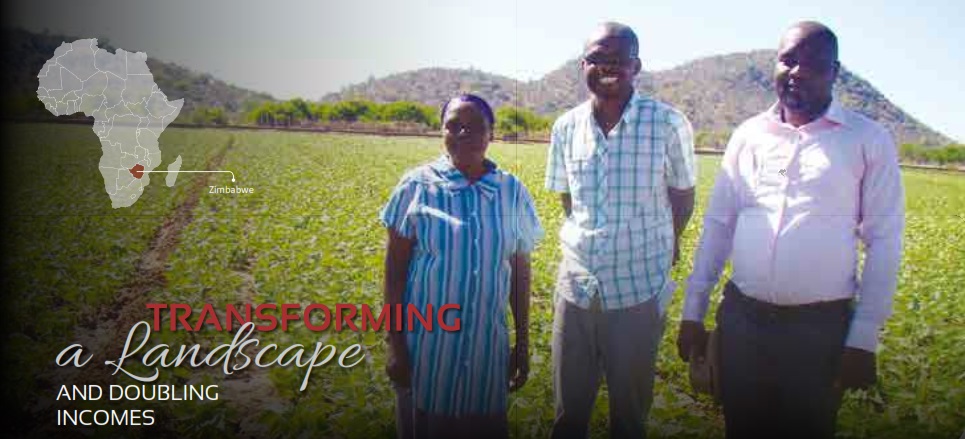Farmers actually wanted to own the new improved bean varieties; to be part of the success in seeing them spreading across the landscape.
Gutsa Freeman, Principal Research Economist at the Harare Research Station.
In Zimbabwe, nutritional deficiencies and chronic malnutrition persist in some areas. Yet while beans have the potential to diversify diets and boost nutrition, in areas like Manicaland province, farmers either do not produce common beans, or producing very little, and are skeptical about new varieties.
The new common bean variety, NUA45, released in 2010 by the Crop Breeding Institute of the Department of Research and Specialist Services in Zimbabwe, was not spared by the adoption challenges. The NUA45 bean, despite being rich in proteins, minerals and fiber, was released into the community and yet farmers were reluctant to take it up.
To solve the impasse, the CIAT-PABRA Bean Production Support Initiative, supported the CIAT-PABRA Bean Production Support Initiative, supported by the Swiss Agency for Development and Cooperation (SDC) and in partnership with the Department of Research and Specialist Services, launched a well-coordinated forum, bringing bean farmers and all stakeholders along the value chain, to discuss strategic actions for enhancing uptake of the bean.
The approach, known as the Innovation Platform for Technology Adoption, led to a remarkable transformation in the attitudes of the farmers participating in the forum.
Since 2010, the number of farmers growing the beans within a pilot area has increased from 11 to 79 percent. Yields have doubled, from 0.9 to 1.8 tons per hectare. Despite drought, which has severely affected yields, returns from NUA45 bean sales per farmer have risen from an average of US$90 to US$252.
We now develop new varieties together with the farmers.
The new approach allows us to hear the voices of the people who will grow and earn an income from the beans. Farmers need to profit from their hard work, and with this new approach, we are working together to find varieties that are high yielding,
high in nutritious qualities, and earn farmers a higher income too.
Gutsa Freeman, Principal Research Economist at the Harare Research Station.

